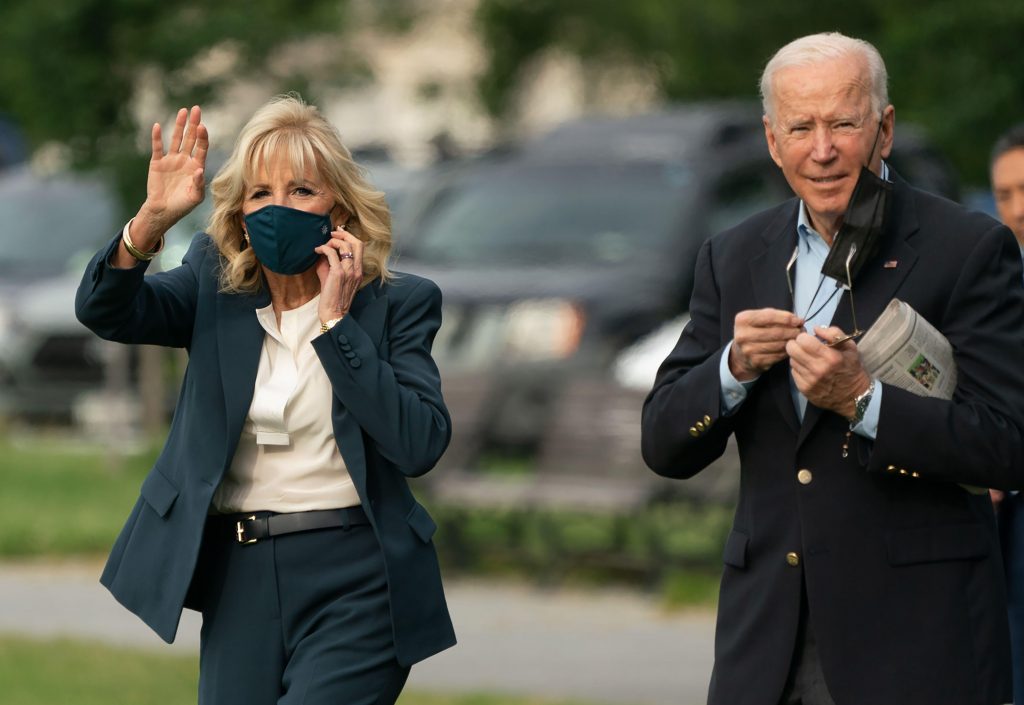U.S. President Joe Biden arrived in Europe to attend a rare “triple summit” of NATO, G7 industrialised countries and the 27-nation European Union devoted to ways of tackling Russia’s month-old invasion of Ukraine, which has wrought vast destruction, forced more than 3 million to flee and revealed the resilience of those defending the ex-Soviet state.
As leaders gathered in Brussels, NATO Jens Stoltenberg, who has firmly ruled out committing troops to Ukraine or imposing a “no fly” zone, announced a considerable broadening of Alliance military groups in the region adjacent to the country.
And Ukrainian President Volodymyr Zelensky said he expected the summits to take “serious steps” to help his country expel the invaders and restore peace.
Russian showed no letup in pounding Ukrainian cities already large reduced to rubble but still in their defenders’ hands. But Western defence analysts suggested Russian troops were becoming demoralised and had lost some ground to Ukrainian forces.
And with energy still a key Russian trump card in its relations with the West, Kremlin leader Vladimir Putin said “unfriendly” states – meaning the European Union and allies that have imposed sanctions – would have to pay for their gas in roubles, a move to bolster the sagging currency.
Stoltenberg announced the deployment of four new NATO battlegroups in Bulgaria, Hungary, Romania and Slovakia – all NATO member-states since the Alliance’s eastward expansion – in addition to existing groups in the Baltic states and Poland. Each such group normally is made up of several hundred troops.
“All of this is the immediate response to the Russian invasion of Ukraine,” he said. “This means that we will have eight multinational NATO battlegroups all along the eastern flank, from the Baltic to the Black Sea.”
British officials said Prime Minister Boris Johnson would announce deliveries of new weaponry for Ukraine, including 6,000 missiles and anti-tank shields.
U.S. officials said Washington would try to persuade its allies to toughen the sanctions regime against Moscow.
“What we would like to hear is that the resolve and unity that we’ve seen for the past month will endure for as long as it takes,” Biden’s national security adviser, Jake Sullivan, told reporters on Air Force One.
7,000-15,000 Russian dead: NATO
A NATO estimate issued on the eve of the meeting by a senior officer said anywhere between 7,000 and 15,000 Russian troops had been killed in a month of hostilities. That compared to a Pentagon estimate of about 7,000 in this conflict and a total of 15,000 Soviet dead suffered in a 10-year campaign in Afghanistan.
Zelensky was invited to address the NATO summit and also to take part in the EU gathering later in the day. Over the past two weeks, he has made addresses to national parliaments in a series of major states.
In his nightly address intended to boost the morale of Ukrainians subjected to weeks of bombardment, Zelensky said it was clear that Ukraine enjoyed popular support worldwide.
“But politicians also have to support freedom, All of them. They have to support the fight of our lives. We are expecting serious steps from NATO, the EU and the G7,” Zelensky said.
“At these three summits we will see: Who is a friend, who is a partner, who sold out and who betrayed us….No one made Ukrainian skies safe from Russian rockets and bombs. We received no aircfaft or modern anti-rocket weaponry. Nor did we receive tanks or anti-ship weapons. Russian troops are able to kil thousands of our people and ruin our cities for the simple reason that there are so many of the occupiers. For the simple reason that Russia prepared for this shameful war over decades”
Two days after Ukraine emphatically rejected a proposal for defenders of the southern port city of Mariupol to down their weapons, Russian forces pounded anew the already pulverised city. New attacks were recorded in Kharkiv, Ukraine’s largely devastated second city and in Chernihiv near the Russian border, where officials said a key bridge was destroyed.
Residential areas of Kyiv were also targeted. But Western and Ukrainian sources said Russian forces had been pushed back both west and east of the capital.
Britain’s Ministry of Defence said Ukraine’s forces were “increasing pressure” on Russian troops north-east of Kyiv.
“It is likely that successful counter attacks by Ukraine will disrupt the ability of Russian forces to reorganise and resume their offensive towards Kyiv,” said the report.
Roubles for gas
In Moscow, Putin ordered the change in payment for gas shipments to Western countries, a key move given that 40 percent of its hydrocarbons EU energy supplies come from Russia. That pushed the rouble up below 100 to the dollar – the currency has depreciated more than 20 percent since the Feb. 24 launch of the invasion
But any European move to mirror a U.S ban on importing Russian hydrocarbons was unlikely. German Chancellor Olaf Sholz told the Bundestag that imposing an immediate ban would create hardship and job losses across Europe.
“We will end this dependence (on Russian oil, coal and gas) as quickly as we can, but to do that from one day to the next would mean plunging our country and all of Europe into a recession,” Sholz said.
The first cracks appeared in official Russian support for the war effort as Anatoly Chubais, a longstanding Russian government insider, quit his job as a special representative for the environment. Western news sources said he had left Russia with no plans to return,
In diplomatic terms, tensions rose further between Russia and Western nations – Poland expelled 45 Russian diplomats accused of spying. Moscow issued a list of U.S. diplomats and officials who could be subject to expulsion in response to Washington throwing out 12 Russian diplomats last month.
At the United Nations, a Russian-backed Security Council resolution calling for improved access for aid but failing to mention Moscow’s invasion was soundly defeated. A Ukrainian-sponsored resolution was due for a vote soon in the U.N. General Assembly.

